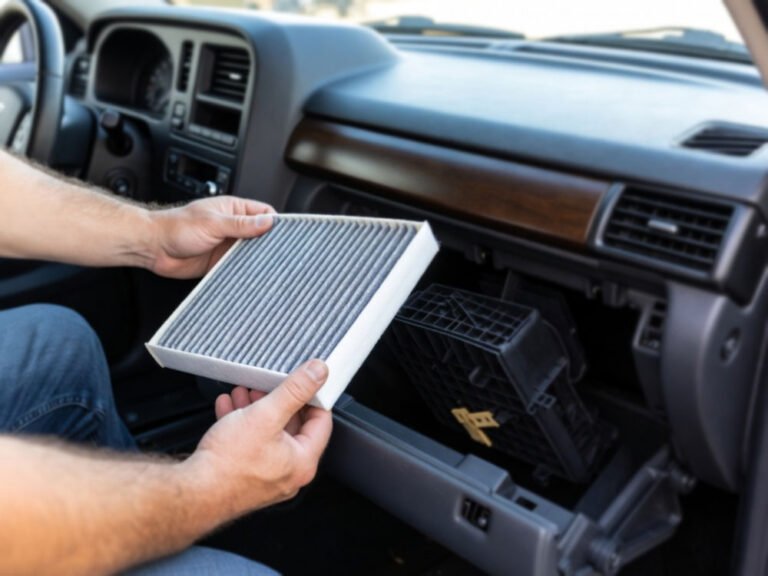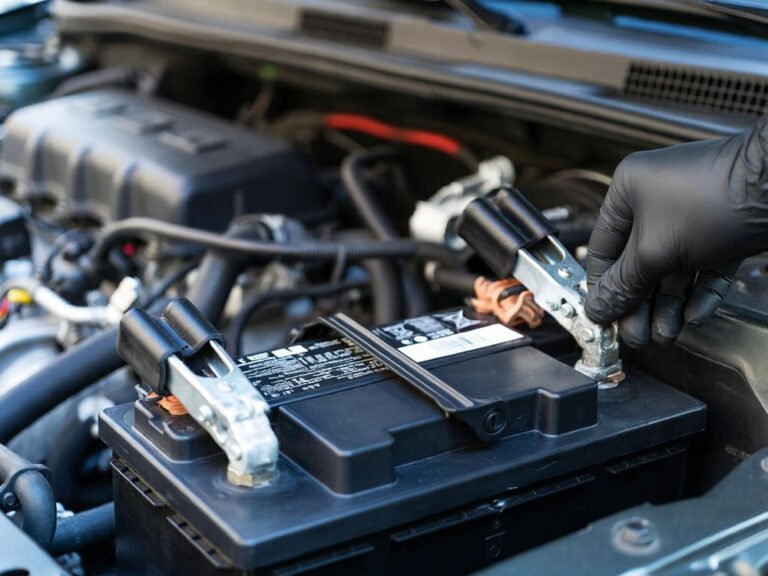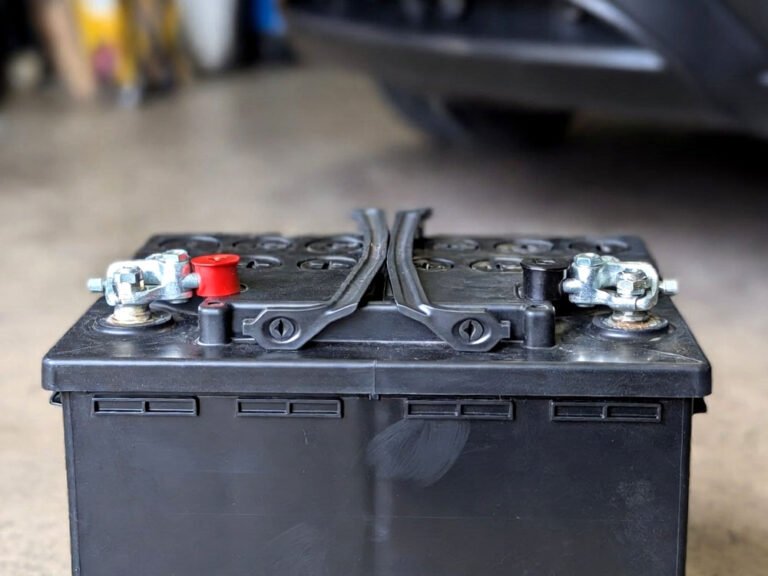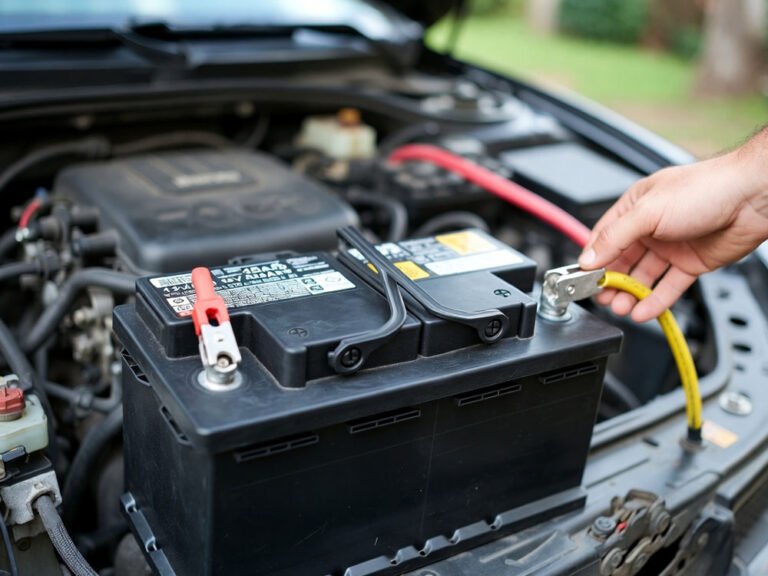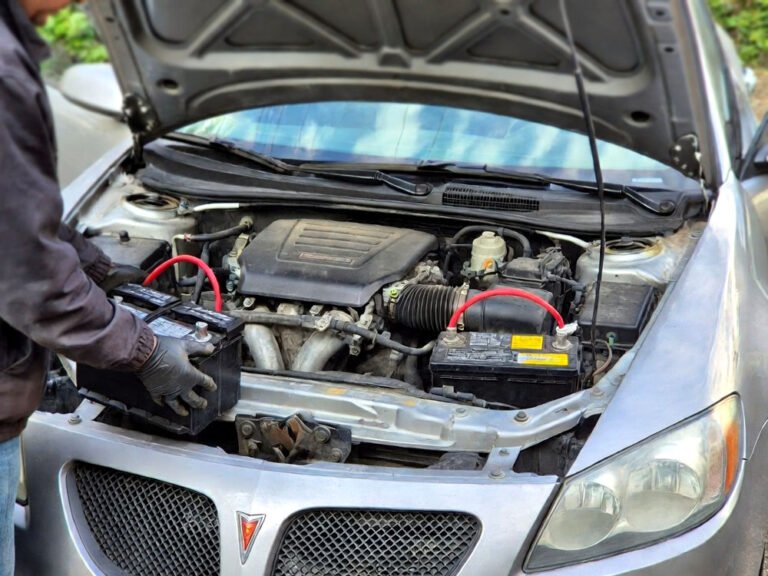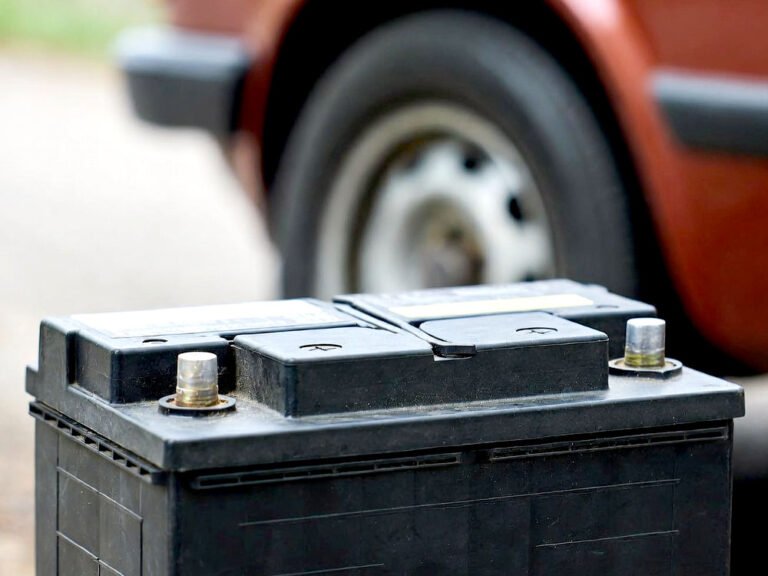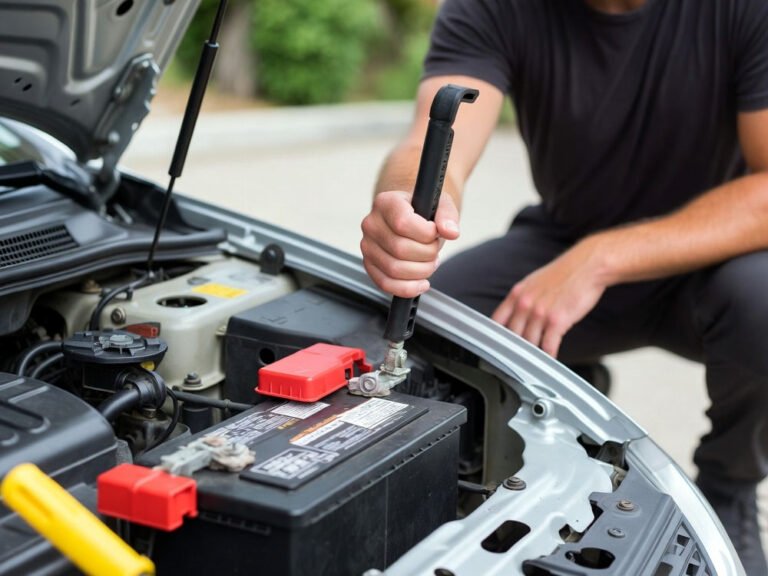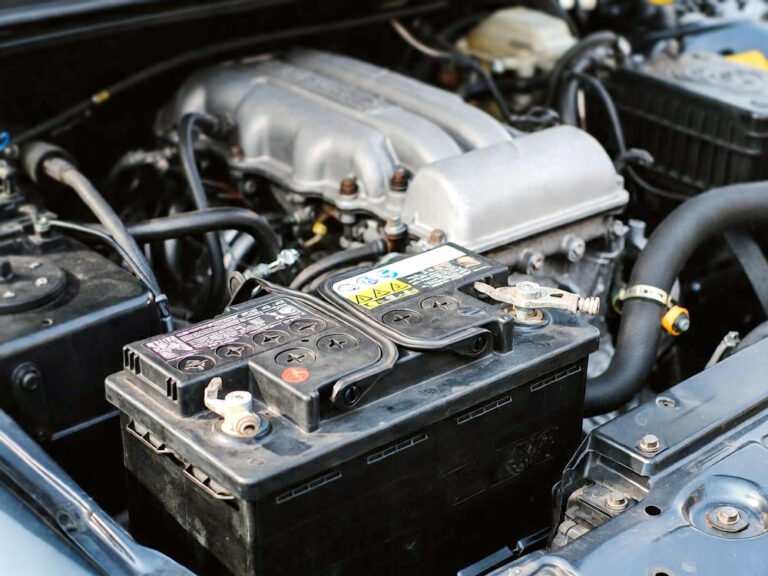You are driving your car at a steady speed, and suddenly, it starts jerking like it’s hiccupping. It’s scary, confusing, and super annoying, right? The truth is, this is a common problem, and it usually means something is wrong with how your car gets fuel, air, or power. The good news is, there are simple ways to fix it. In this article, you will learn the exact causes and how you can stop your car from jerking at a constant speed. It’s not hard once you know what to check.
Check the Spark Plugs and Wires
One of the most common reasons your car jerks while you’re driving at a constant speed is bad spark plugs or spark plug wires. These are small parts in your engine that make the fuel burn properly. When they wear out, your engine doesn’t run smoothly.
When spark plugs go bad, they don’t fire right. That means the engine might skip or stutter while you’re trying to drive smoothly. It feels like the car is jumping or hesitating. You might even notice your check engine light turning on. Spark plug wires can also wear out over time and fail to carry the electric signal from the ignition coil to the plug. When this happens, the spark may be weak or not happen at all.
Another thing to understand is that spark plugs need to be the right type for your car. If someone installed the wrong kind, it could cause these jerks too. Also, if the gap between the metal parts of the plug is too big or too small, it can cause misfires.
Now, how do you fix this? First, check when your spark plugs were last changed. Most cars need them changed every 30,000 to 100,000 miles. You can remove one and take a look. If it’s black, oily, or broken, it’s time for a change. If you see the plug is worn down or corroded, replace it.
You can also use a spark plug tester to check if each plug is firing. If one is not, replace it. The same goes for spark plug wires. If they look cracked or worn out, get a new set. They’re cheap and easy to install for most cars.
Also, don’t forget to check your ignition coils. These help create the spark. If one of them is failing, you can have the same jerking problem. Some auto stores will test your ignition coils for free.
- Bad spark plugs cause misfires and jerking
- Worn or broken spark plug wires stop the spark
- Wrong spark plugs or gap can cause trouble
- Check and replace old plugs and wires
- Inspect ignition coils too
Look at the Fuel Filter and Fuel Injectors
Fuel is what your engine needs to run. But if something blocks the fuel, your engine won’t get what it needs. That’s when jerking starts to happen, especially at steady speeds when the engine expects a smooth fuel flow.
Your fuel filter keeps dirt and trash out of your fuel system. Over time, it gets full and can’t do its job anymore. When this happens, less fuel gets to your engine, and that causes jerks, hesitations, or even engine stalling. If your fuel filter hasn’t been replaced in a long time, it could be the main reason your car is jerking.
Fuel injectors are small nozzles that spray fuel into the engine. If these get dirty or clogged, they won’t spray fuel evenly. That means your engine might get too much or too little fuel. You might also notice rough idling, bad fuel mileage, or a delay when you press the gas pedal.
How do you fix this? First, check your car’s manual and see when the fuel filter should be replaced. If it’s overdue, replace it. It’s usually not expensive. For the fuel injectors, you can try using a fuel injector cleaner. Just pour it into your gas tank. If that doesn’t help, a mechanic can clean them properly or replace them if needed.
Make sure to use good quality fuel too. Low-quality or dirty gas can clog the fuel system faster. And always keep your gas tank at least one-quarter full to avoid sucking up dirt from the bottom of the tank.
- Clogged fuel filters block fuel flow
- Dirty fuel injectors spray fuel unevenly
- Use injector cleaner or get them cleaned by a pro
- Replace old fuel filters as needed
- Use good fuel and keep your tank above low level
Test the Mass Air Flow (MAF) Sensor
The mass air flow sensor, or MAF sensor, tells your engine how much air is coming in. Your car uses this info to mix the right amount of fuel with the air. If the MAF sensor is dirty or not working right, the fuel mixture gets messed up. That’s when jerking starts while driving at a steady speed.
The MAF sensor can get dirty over time. Dust, oil, or moisture can build up on it and stop it from reading correctly. If the sensor reads too little air, the engine might run too rich (too much fuel). If it reads too much air, the engine runs lean (not enough fuel). Both of these cause jerking.
You might also notice rough idling, bad fuel economy, or your engine stalling when you stop. A dirty or broken MAF sensor will usually turn on the check engine light.
To fix this, you can try cleaning the MAF sensor. Use a special MAF sensor cleaner, not regular cleaners, because regular sprays can damage it. Unplug the sensor, remove it, and spray the cleaner directly on the sensor wire. Let it dry and then put it back.
If cleaning doesn’t help, the sensor might be broken and needs to be replaced. This isn’t very expensive and usually takes less than 10 minutes to replace.
- MAF sensor measures air for fuel mix
- Dirty sensor causes wrong air-fuel mix
- Jerks, rough idle, and poor fuel use are signs
- Clean with MAF sensor spray
- Replace if cleaning doesn’t help
Check the Throttle Position Sensor (TPS)
The throttle position sensor tells your engine how much gas you’re giving it when you press the pedal. If this sensor is off, your car won’t know how much power to give. This causes jerking or surging at steady speeds.
A bad TPS can give wrong signals. That means your engine might think you’re pressing the gas more or less than you are. So it might add too much or too little fuel, which causes the car to jerk or lurch forward unexpectedly.
You might also feel hesitation when you try to speed up. Or the engine might stall when you stop. Sometimes the car might idle too high or too low.
You can test the TPS with a multimeter, or have a mechanic check it. If the sensor is faulty, replacing it is the best fix. In some cases, the sensor may just be loose or misaligned. Adjusting or tightening it can help.
Be sure to disconnect the battery before working on the TPS to avoid errors. Also, always reset the engine computer after replacing or fixing the sensor.
- TPS tells engine how much throttle you’re using
- Bad TPS causes wrong fuel amount
- Jerking, hesitation, or stalling are signs
- Test or replace if needed
- Reset engine computer after fixing
Clean or Replace the EGR Valve
The EGR valve helps reduce pollution by sending some exhaust gas back into the engine. It works only at certain times. But if it gets stuck open or closed, it can cause trouble, like jerking or rough driving.
When the EGR valve sticks open, too much exhaust gets in, and your engine doesn’t run right. It will stumble or hesitate, especially when driving at a constant speed. If it’s stuck closed, your engine can get too hot or knock. In both cases, jerking is common.
Carbon build-up is the main reason EGR valves go bad. The good news is, they can be cleaned. Remove the valve and spray it with carburetor cleaner. Use a soft brush to clean off the carbon. Make sure it moves freely when done.
If cleaning doesn’t help, replace the valve. Some modern cars have electronic EGR valves, and these may need special tools or software to reset.
- EGR valve helps control emissions
- Stuck valve causes too much or too little exhaust gas
- Jerking and engine knocking may happen
- Clean with carb cleaner
- Replace if cleaning fails
Check Transmission and Engine Mounts
If your car still jerks while driving steadily, it might not be the engine. The problem could be in the mounts that hold the engine and transmission in place. These mounts keep the engine steady. If they break or wear out, you feel it as jerking or shaking.
Rubber engine mounts get old and crack. When this happens, the engine moves too much when driving. You’ll feel a jerk especially when the car changes gears, speeds up, or slows down. You might also hear clunking or banging sounds.
Transmission mounts work the same way. If these break, your transmission can move out of place. This also causes rough driving and jerking.
To check mounts, open the hood and have someone shift the car from park to drive and reverse. If the engine jumps a lot, the mounts are bad. You can also inspect them for cracks or broken rubber.
Replacing mounts is not too hard but should be done soon. Bad mounts can damage other parts over time.
Summary:
- Mounts hold engine and transmission in place
- Bad mounts cause jerking and shaking
- Look for broken or cracked rubber
- Check for engine movement when shifting gears
- Replace damaged mounts soon
Final Thoughts
Car jerks while driving at constant speed can be scary, but the fix is often simple. Most of the time, it’s a small part like a spark plug, sensor, or fuel filter that just needs cleaning or replacing. If you check each part one by one, you’ll likely find the reason. Don’t ignore jerking — it can lead to bigger problems later. Take care of it now, and your car will run smoother and safer. Always do small maintenance on time to avoid big issues later.
Quick Guide Table
| Problem Area | Possible Issue | Sign of Problem | What to Do | Cost Estimate |
|---|---|---|---|---|
| Spark Plugs | Worn or faulty | Misfires, jerking | Replace plugs/wires | $20–$100 |
| Fuel Filter | Clogged | Hesitation, stalling | Replace filter | $15–$50 |
| Fuel Injectors | Dirty or clogged | Poor fuel use, rough idle | Use cleaner or clean manually | $10–$200 |
| MAF Sensor | Dirty or failing | Rough driving, check engine | Clean or replace | $20–$150 |
| TPS | Misaligned or bad | Hesitation, surging | Adjust or replace | $40–$100 |
| EGR Valve | Stuck open or closed | Jerking, knocking | Clean or replace | $30–$150 |
| Engine/Transmission Mounts | Broken or cracked | Shaking, banging sounds | Replace mounts | $50–$300 |
Frequently Asked Questions (FAQs)
Is it safe to drive a car that jerks at steady speed?
No, it’s not fully safe to drive a car that jerks at steady speed. Jerking means something is wrong with your engine, fuel system, or transmission. Driving like this can cause more damage. Also, it can make you lose control, especially in traffic or on highways. If your car jerks suddenly, it can be hard to react in time. It’s better to fix the problem early to stay safe and avoid bigger repair costs later.
Can dirty fuel cause car jerking?
Yes, dirty fuel can cause your car to jerk. Bad fuel often has dirt or water in it, and that can clog your fuel filter or injectors. When the fuel flow gets blocked or uneven, your engine doesn’t run smoothly. It may jerk, lose power, or stall. Always get fuel from a trusted gas station. If you think bad fuel caused the problem, you might need to clean the injectors or replace the fuel filter.
Do I need to replace all spark plugs at once?
It is best to replace all spark plugs at once, even if only one is bad. That way, they all work the same and fire properly. If one plug is bad, the others might be close to wearing out too. Changing them all at once saves time and keeps your engine running smooth. It also helps prevent more jerking or misfires later on.
Can a bad sensor make the car jerk?
Yes, a bad sensor can make your car jerk. Sensors like the MAF or TPS tell your car how to mix fuel and air or control the throttle. If they send wrong signals, your engine gets the wrong mix and that leads to jerking. Cleaning or replacing these sensors usually solves the problem.
Do I need a mechanic to fix jerking?
Not always. Some problems that cause jerking can be fixed at home, like changing spark plugs or cleaning the MAF sensor. But if you’re not sure, or if it involves the transmission or engine mounts, it’s better to see a mechanic. They can find the exact issue fast and make sure the fix is done right.
Is it expensive to fix a jerking car?
It depends on what’s causing the jerking. Small fixes like spark plugs, filters, or sensors are cheap — usually under $100. But if it’s a bigger issue like a transmission mount or bad fuel injectors, the cost can be higher. Doing regular maintenance helps you avoid big repair bills later.
Can transmission problems cause jerking?
Yes, if your transmission is not shifting right or if the mounts are broken, you can feel jerking. The transmission is what changes gears. If it slips or lags while driving, it causes sudden movements. If the mounts are broken, the whole engine can shift when changing gears, and that feels like jerking.
Do I have to stop driving if my car jerks?
If the jerking is mild, you may still drive short distances. But it’s not safe for long drives or highway trips. Jerking means something is wrong, and it can get worse. It’s better to fix the problem as soon as you can before it leads to breakdown or an accident.


